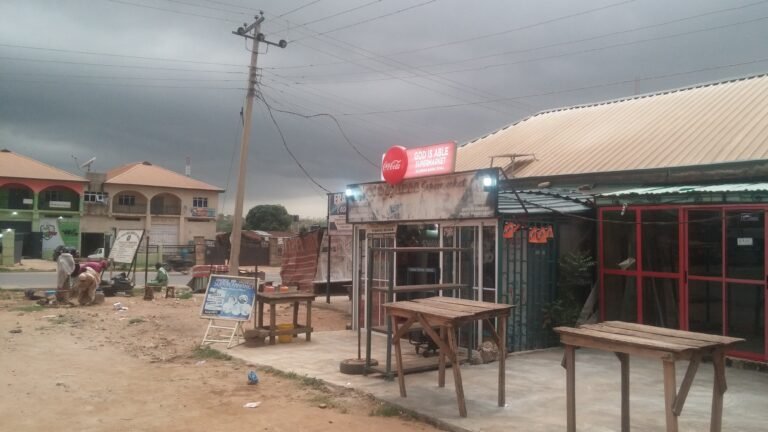SURVIVAL BIAS AT CHURCH – HOW EVANGELICAL CULTURE DISTORTS YOUR EXPECTATIONS
About 5 min read about how testimonies we hear at church have little to do with real life.

As a kid, I used to think that Auschwitz wasn’t that bad. Of course, there were nasty things that happened there, but everyone somehow managed to get out, right?
No, I wasn’t completely dumb – I enjoyed history, and history books, and documentaries in the TV. In these documentaries I’d see former Auschwitz prisoners talking about what they’d been through. As much as it was horrible, each of them had a story of how they managed to survive it. All of them finally did. I imagined I would probably get out as well. It wasn’t that tricky in the end, was it?
This way of thinking is a common fallacy, a logical error called ‘survival bias’.
https://en.wikipedia.org/wiki/Survivorship_biasSurvival bias is the logical error of concentrating on entities that passed a selection process while overlooking those that did not. This can lead to incorrect conclusions because of incomplete data. Survivorship bias is a form of sampling bias that can lead to overly optimistic beliefs because multiple failures are overlooked
Ok, but what does it have to do with anything here? Well, when last did you hear a testimony at church? Some congregations have a special time reserved for them each Sunday. Who got healed? Whose difficult financial situation got sorted out? Whose aunt got saved?
And rarely we talk about the opposite: people dying and suffering despite our prayers, failed missionaries quietly returning home, broken Christian marriages… There’s definitely no special time for sharing these stories at church. We prefer to pretend it doesn’t happen so much. Why wouldn’t we? It doesn’t lift up the mood, it doesn’t ‘build our faith’? If it happens to us, we suffer, but not too publicly.
These thoughts are running freely through my head as I’m listening to today’s sermon, or actually a sermon-long testimony of how the lady speaking got called by God to build a school and how it finally got done – over many obstacles and through a lot faith, and prayer, and supposed miracles. It’s a lovely story, don’t get me wrong. But here’s the thing: we’re only hearing about it precisely because it eventually got done. Had it failed, she wouldn’t be there by the mic. And things fail. And no, sinfulness and lack of faith alone can’t be blamed for that.
I’m now immune to survival bias; to all the success-through-faith stories shared and preached from the pulpit. Even if I accept some as, at least, possibly miraculous, I don’t build my worldviews and expectations on them. Sitting here, I worry that many other people do. Some will grow out of it; I’m more concerned about those who will go through their adult lives believing and preaching it, with their butts clenched and their mouth proclaiming words, everything in them trying to produce enough emotions to make actual things happen. They call those emotions ‘faith’, and they believe that somehow raising enough of it will force the universe to change. In the 1969 Woodstock footage there’s a scene where the sky gets grey, the wind starts blowing and thousands of American hippies start chanting together: ‘No rain! No rain! No rain!…’ That’s it, that’s the same thing. I’ve seen entire churches and communities built on that. And as in the ‘69, the rain comes anyway, no matter how hard you’ve shouted.
Sorry, everything won’t be fine, at least not in the immediate dimension you want it to be. There are miracles, but there aren’t miracles too, as some wise man said. Sick won’t be healed, marriages won’t last, ‘steps of faith’ will lead to frustrations… And it doesn’t have to be anyone’s fault: not ours, not God’s.
Yes, it is fine to share something positive, less or more ‘supernatural’. Yes, it is great to share how God has changed one’s reality. But only as long as it’s shared as what is it: a one-off experience, not the rule of how things should always work for those who believe, not as the motivational, feel-good ‘you can do it!’, I have heard way too often.
How about we stop pretending and admit that real life is a mixture of failure and success, and that nothing healthy comes from overlooking the former?
Once the church ends, I’m back home. We’ve had heavy rainfall over four days and last night the weather delivered its final blow – water poured from the sky for hours causing some river levels to exceed their all-time highs by over one meter. The town is flooded; the firefighters are running back and forth pumping brown water out of basements.
My cousin’s place is next to the river and it’s bad there. The water rose to chest level, turning their garden into a muddy lake. Furniture, bicycles, bookshelves and tons of sentimental trash we tend to keep in basements – all soaked and dirty and heavy. Washing machines and the main boiler are broken. She and her husband haven’t slept all night trying to save as much as they could. Their daughter is with grandma while we’re working. Once the firefighters manage to get the water out, the guys from their home group come straight away. They brought their sons, boys between 10 and 14 years old. We’re working hand in hand, and they must be feeling themselves becoming men. There’s someone from the church, there are two boys from the Ukrainian family my cousin hosted for a few months after Russians invaded their country. There’s plenty to do.
We finish after it’s dark; wet piles of stuff gutted from the basement shine in the moonlight. We finally get outside, all dirty and sweaty, we shake hands and we pray together. We’ll be back tomorrow to do more. As I cycle back home, I know there still are things which actually work and happen. They often feel less miraculous.


